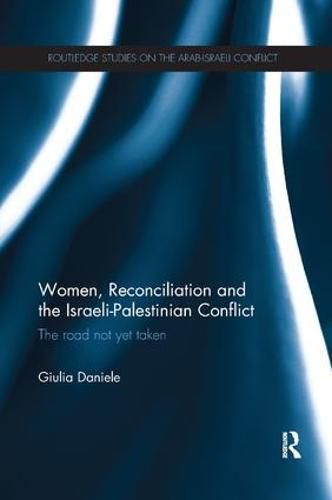Readings Newsletter
Become a Readings Member to make your shopping experience even easier.
Sign in or sign up for free!
You’re not far away from qualifying for FREE standard shipping within Australia
You’ve qualified for FREE standard shipping within Australia
The cart is loading…






Women, Reconciliation and the Israeli-Palestinian Conflict explores the most prominent instances of women’s political activism in the occupied Palestinian territories and in Israel, focussing primarily on the last decade. By taking account of the heterogeneous narrative identities existing in such a context, the author questions the effectiveness of the contributions of Palestinian and Israeli Jewish women activists towards a feasible renewal of the ‘peace process’, founded on mutual recognition and reconciliation.
Based on feminist literature and field research, this book re-problematises the controversial liaison between ethno-national narratives, feminist backgrounds and women’s activism in Palestine/Israel. In detail, the most relevant salience of this study is the provision of an additional contribution to the recent debate on the process of making Palestinian and Israeli women activists more visible, and the importance of this process as one of the most meaningful ways to open up areas of enquiry around major prospects for the end of the Israeli-Palestinian conflict.
Tackling topical issues relating to alternative resolutions to the Israeli-Palestinian conflict, this book will be a valuable resource for both academics and activists with an interest in Middle East Politics, Gender Studies, and Conflict Resolution.
$9.00 standard shipping within Australia
FREE standard shipping within Australia for orders over $100.00
Express & International shipping calculated at checkout
Women, Reconciliation and the Israeli-Palestinian Conflict explores the most prominent instances of women’s political activism in the occupied Palestinian territories and in Israel, focussing primarily on the last decade. By taking account of the heterogeneous narrative identities existing in such a context, the author questions the effectiveness of the contributions of Palestinian and Israeli Jewish women activists towards a feasible renewal of the ‘peace process’, founded on mutual recognition and reconciliation.
Based on feminist literature and field research, this book re-problematises the controversial liaison between ethno-national narratives, feminist backgrounds and women’s activism in Palestine/Israel. In detail, the most relevant salience of this study is the provision of an additional contribution to the recent debate on the process of making Palestinian and Israeli women activists more visible, and the importance of this process as one of the most meaningful ways to open up areas of enquiry around major prospects for the end of the Israeli-Palestinian conflict.
Tackling topical issues relating to alternative resolutions to the Israeli-Palestinian conflict, this book will be a valuable resource for both academics and activists with an interest in Middle East Politics, Gender Studies, and Conflict Resolution.